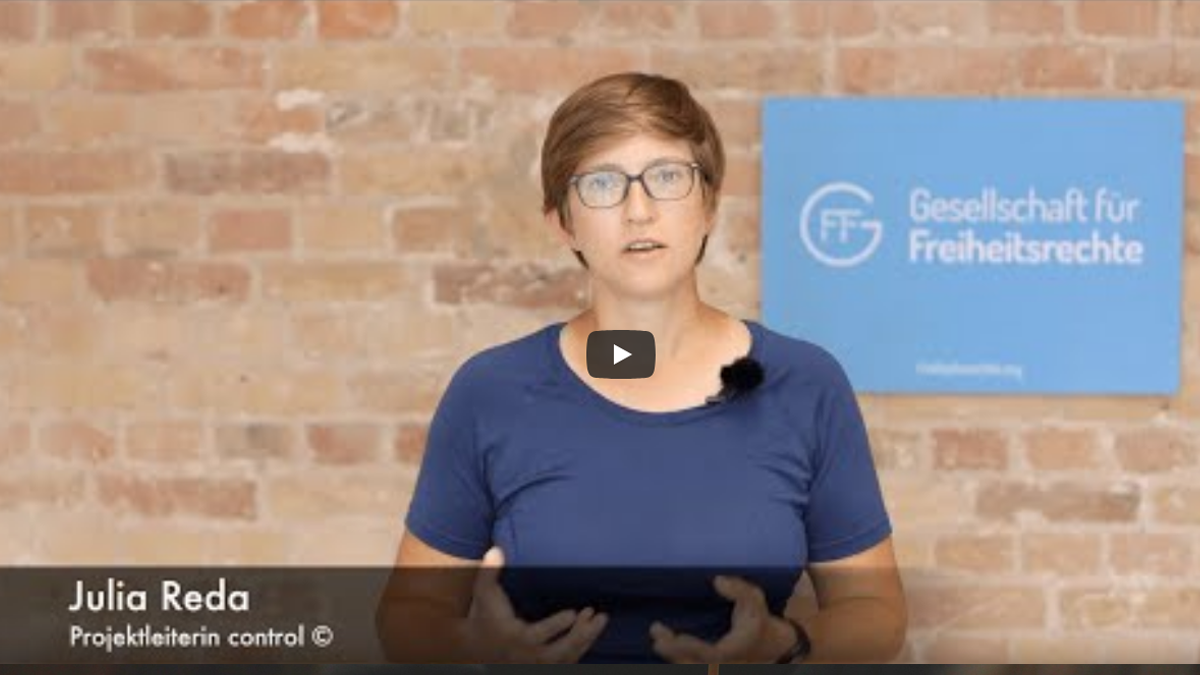Website blocking: No copyright liability for DNS services!
EDRi's member Society for Civil Rights (GFF) supports the independent DNS resolver Quad9 in a court case against an interim injunction ordering Quad9 to set up network blocks. The blocking of entire websites is a threat to freedom of information on the internet. Technologically neutral service providers must not bear the costs and risks of enforcing claims for copyright infringements for which they are neither involved in nor aware of.
EDRi’s member Society for Civil Rights (GFF) supports the independent DNS resolver Quad9 in a court case against an interim injunction ordering Quad9 to set up network blocks. The blocking of entire websites is a threat to freedom of information on the internet. Technologically neutral service providers must not bear the costs and risks of enforcing claims for copyright infringements for which they are neither involved in nor aware of.
Please note that by clicking on this video, it will open an external link to the video on YouTube. YouTube engages in extensive data collection and processing practices that are governed by their own terms of service.
DNS resolvers like Quad9 translate domain names like freiheitsrechte.org into numeric IP addresses like 144.76.206.17. DNS resolvers are required to enable people to find their way around the internet without having to remember IP addresses. Quad9 is an independent, donation-funded DNS resolver based in Switzerland that offers a particularly privacy-friendly service which, among other things, allows its users to encrypt their queries. Quad9 also offers its users protection against cyber-attacks by not resolving addresses used in phishing and malware attacks. In doing that, Quad9 does not itself decide which addresses are not resolved, but rather implements recommendations by independent IT security experts.
Indirect liability for copyright infringements must not be arbitrarily extended to include uninvolved third parties
At the request of Sony Music Entertainment Germany GmbH, the Hamburg Regional Court ordered Quad9 to block access to a website (website A) that was held to contain links to copyright-infringing content on another website (website B). Quad9 has no relationship whatsoever to the operators of the two websites or the users who upload content there. Quad9 is hence far removed from the actual copyright infringement. The Regional Court of Hamburg holds Quad9 liable based on the principles of so-called “Stoererhaftung” (indirect liability for copyright infringements), on the grounds that Quad9 makes a liability-creating contribution to a copyright infringement by converting the domain name of website A into the associated IP address. The “Stoererhaftung” has been criticised for years due to its excessive application in internet cases. German lawmakers explicitly abolished “Stoererhaftung” for access providers with the 2017 amendment to the German Telemedia Act (TMG), primarily in order to protect WIFI operators from being held liable for damages as “interferers” due to indirect involvement in copyright infringements.
DNS blocking: limited effect, problematic in terms of fundamental rights
The establishment of DNS blocking by Quad9 does not result in copyright infringements no longer being accessible. Internet users can easily access blocked websites through other channels. Moreover, the affected website will already be accessible under a different domain. This limited effectiveness is contrasted by a serious infringement of the fundamental right of internet users to freedom of information under Article 5 (1) of the German Basic Law and Article 11 of the EU Charter of Fundamental Rights. DNS blocks always affect the entire content of a domain, hence lawful content is likewise affected by the block. The ECJ already ruled in 2014 that network blocks are only compatible with the freedom of information of internet users if access to lawful information is not disproportionately restricted and if users have access to effective legal protection to act against the block. If an internet access provider blocks access to lawful content, its customers at least have a contractual claim against the provider; this is not the case when using a free DNS resolver, which anyone can use without prior registration.
With our court case we hope to show that DNS services should be considered for exclusion of liability under the “Stoererhaftung” and are therefore not liable for copyright infringements from other websites. This case is just one example of how we fight for a free and open internet.
(Contribution by: Janina Zillekens, Press and Public Relations Officer, GFF)

